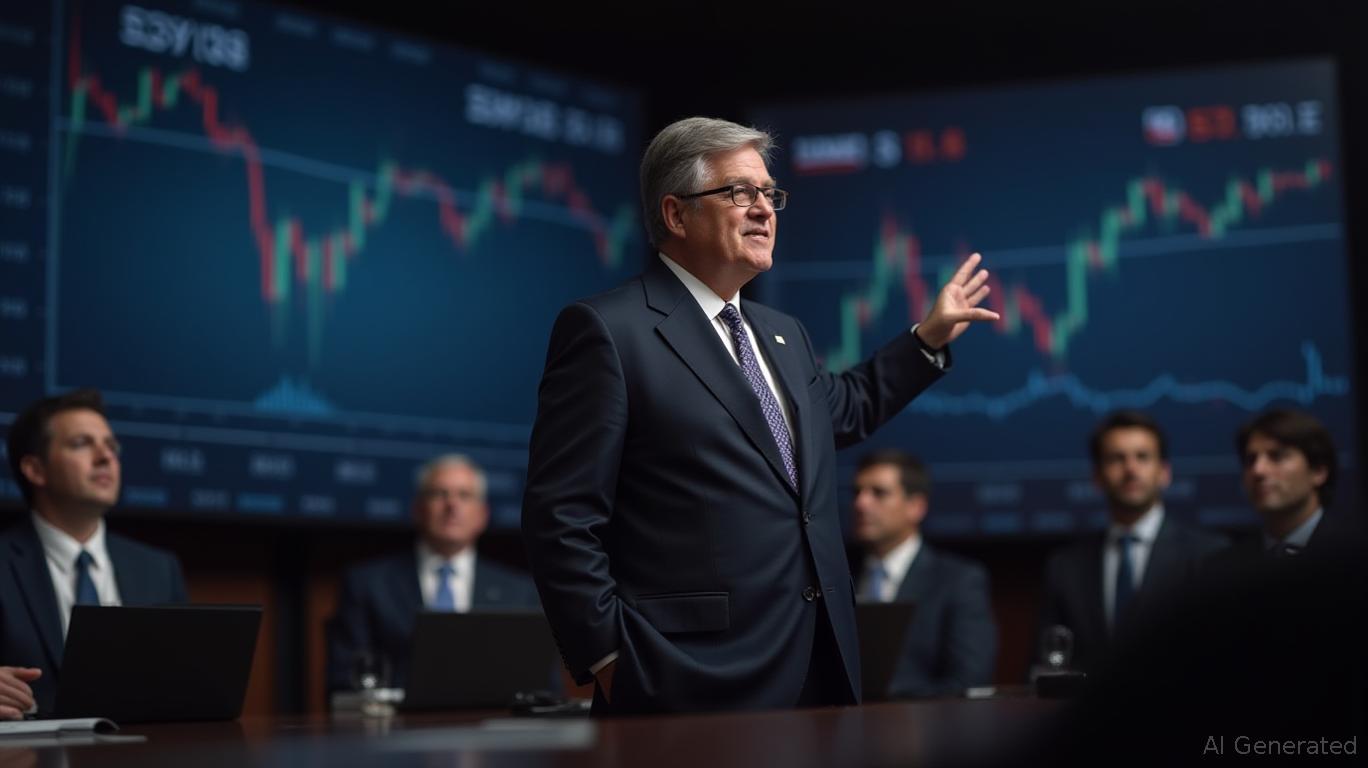Ethereum Updates Today: Securitize’s Public Launch Accelerates Institutional Embrace of Tokenization
- Securitize, backed by BlackRock, will go public via a $1.25B SPAC merger with Cantor Equity Partners II, listing on Nasdaq as "SECR" at a $1.25B valuation. - BlackRock's $500M BUIDL fund deployment on Aptos pushed RWA tokenized assets past $1.2B, making Aptos the third-largest RWA chain globally. - The merger highlights growing institutional adoption of tokenization, with Securitize's platform digitizing real estate, bonds, and commodities for decentralized trading. - Regulatory shifts in the U.S. and Eu
Securitize, a company specializing in real-world asset (RWA) tokenization and supported by BlackRock, is preparing to enter the public market through a $1.25 billion SPAC merger with
This merger highlights the increasing institutional interest in asset tokenization, a trend further fueled by BlackRock’s recent $500 million investment of its BUIDL fund on the

Securitize’s technology allows for the digital representation of assets like property, government securities, and commodities, making them tradable on decentralized platforms. The company has previously attracted investments from BlackRock, ARK Invest, and Morgan Stanley, establishing itself as a frontrunner in the RWA industry. CEO Carlos Domingo stated that the merger will help Securitize "bring financial markets up to internet speed," echoing BlackRock’s belief in tokenization as a game-changer for the financial sector.
The RWA industry as a whole has been gaining traction thanks to supportive regulatory developments in both the U.S. and Europe. For example, Professional Diversity Network recently revealed a partnership with a European digital finance company to investigate the creation of a global RWA exchange, showcasing the sector’s potential for international expansion. At the same time, rivals such as
Securitize’s decision to go public via a SPAC reflects a broader movement among blockchain companies to gain greater institutional legitimacy. The merger with Cantor Equity Partners II, backed by Cantor Fitzgerald, combines traditional financial expertise with cutting-edge technology. Howard Lutnick, CEO of Cantor Fitzgerald, emphasized blockchain’s "enormous potential to reshape finance," indicating a growing mainstream acceptance of tokenization.
With the RWA sector continuing to grow, Securitize’s public listing could encourage more institutional investors to participate. BlackRock’s BUIDL fund has already allocated $1.2 billion in tokenized assets across Ethereum and Aptos, and its collaboration with Securitize underscores a commitment to expanding blockchain infrastructure. This milestone signals a significant shift for tokenization, as established financial institutions increasingly adopt blockchain for quicker settlements and improved liquidity.
Disclaimer: The content of this article solely reflects the author's opinion and does not represent the platform in any capacity. This article is not intended to serve as a reference for making investment decisions.
You may also like
Bitcoin Updates: Fed’s Softer Stance Supports Both Economic Expansion and Inflation—Positive Momentum for Crypto
- The U.S. Federal Reserve cut rates by 25 bps to 3.75%-4.00% on October 29, 2025, ending quantitative tightening by December 1, easing liquidity constraints. - Crypto markets initially dipped post-announcement but gained analyst support as lower rates and weaker dollar historically boost Bitcoin and Ethereum as hedges. - Institutional crypto demand remained strong with Coinbase reporting 2,772 BTC inflows and Bitcoin ETFs seeing net inflows, while Tether's USDT supply surpassed $183 billion. - The Fed's "

Bitcoin News Update: Bitcoin Rally Drives $2.8B in Gains While Strategy's Shares Drop 15% Year-to-Date
- Strategy Inc. (MSTR) reported $2.8B Q3 2025 net income from Bitcoin's $70.6B portfolio (640,808 BTC) amid $20B unrealized gains. - New fair value accounting rules enabled profit recognition without selling Bitcoin, reversing $340M 2024 losses and boosting operating income to $3.9B. - CEO Phong Le targets $34B operating income if Bitcoin hits $150K, while $20B 2025 capital raises expanded holdings by 40,000 BTC. - Despite 51.74% BTC gains, shares fell 15.15% YTD due to dilution concerns, contrasting with

MEV's Tendency to Centralize Poses a Challenge to the Fundamental Principles of DeFi
- MEV (Maximal Extractable Value) destabilizes DeFi markets by enabling miners/validators to reorder transactions for profit, imposing a "hidden tax" on retail traders through front-running and sandwich attacks. - Aditya Palepu highlights systemic risks: 80% of MEV costs fall on retail users, while institutions avoid DeFi to mitigate front-running risks, undermining market liquidity and stability. - Trusted Execution Environments (TEEs) encrypt transactions pre-execution to block front-running, but vulnera

MEV Takes Advantage of DeFi Transparency, Triggering Concerns Over Fairness
- MEV exploits blockchain transparency to reorder transactions, creating a "hidden tax" that deters institutional DeFi adoption and harms retail users. - Sandwich attacks and front-running cost retail investors up to 80% of MEV-driven losses, with 24% of Ethereum blocks affected annually. - Trusted execution environments (TEEs) emerge as a solution by privatizing transaction data, potentially unlocking $trillions in institutional capital. - Experts warn MEV centralizes power and inflates costs, requiring g
